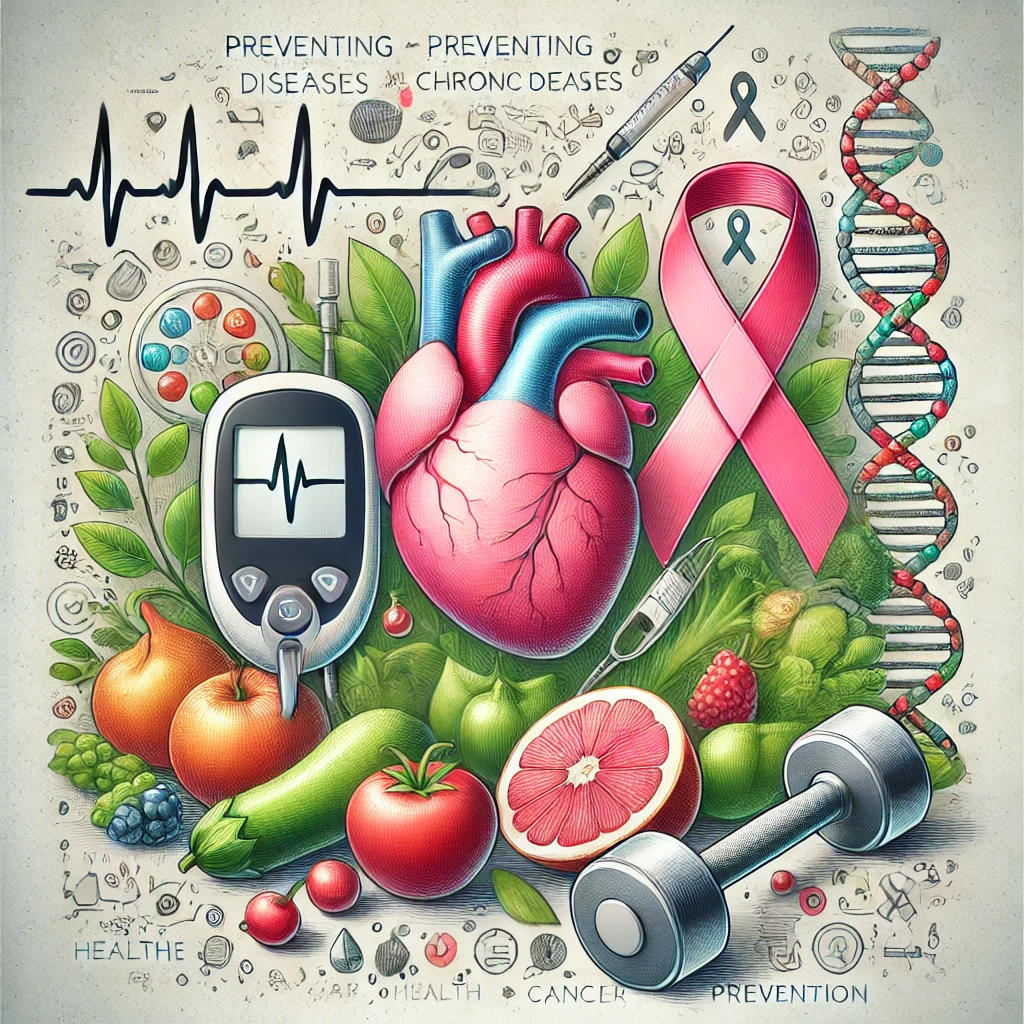Chronic diseases like heart disease, diabetes, and cancer are leading causes of death worldwide, yet many of these conditions are preventable. This article will explore the most effective strategies for preventing these chronic diseases, focusing on lifestyle changes, early detection, and the role of nutrition and exercise.
Understanding Chronic Diseases
-
- Define what chronic diseases are and their impact on global health.
- Statistics on the prevalence of heart disease, diabetes, and cancer.
- The economic and personal costs of chronic diseases.
- Source: World Health Organization (WHO). Global Health Observatory (GHO) data: NCD mortality and morbidity. Link to source
Heart Health: Strategies for Prevention
- Diabetes Prevention and Management
- Understanding Diabetes:
- Differences between Type 1, Type 2, and gestational diabetes.
- Risk factors and symptoms of diabetes.
- Diet and Diabetes Management:
- How diet influences blood sugar levels and insulin sensitivity.
- Foods to include and avoid in a diabetes-friendly diet.
- The role of fiber, whole grains, and low-glycemic foods.
- Source: American Diabetes Association. Nutrition and diabetes. Link to source
- Exercise and Diabetes:
- The impact of physical activity on blood sugar control.
- Guidelines for safe exercise for individuals with diabetes.
- Monitoring and Medication:
- The importance of regular blood sugar monitoring.
- Overview of common medications and their role in diabetes management.
- Innovations in diabetes care, including continuous glucose monitoring (CGM) and insulin pumps.
- Understanding Diabetes:
Cancer Prevention: Reducing Your Risk
- The Role of Mental Health in Chronic Disease Prevention
- Stress and Chronic Disease:
- How chronic stress contributes to the development of heart disease, diabetes, and cancer.
- Mental Health Strategies:
- Techniques for managing stress, including mindfulness, meditation, and therapy.
- The role of sleep in preventing chronic diseases.
- Source: Harvard Medical School. The importance of mental health in preventing chronic diseases. Link to source
- Stress and Chronic Disease:
- Building a Comprehensive Prevention Plan
- Personalized Prevention:
- How to assess your risk factors and build a personalized prevention plan.
- Community and Public Health Initiatives:
- The role of community programs and public health policies in reducing the prevalence of chronic diseases.
- Resources and Support:
- Where to find support for making lifestyle changes (e.g., support groups, counseling, online resources).
- Source: Centers for Disease Control and Prevention (CDC). Preventing chronic diseases: strategies that work. Link to source
- Personalized Prevention:
Conclusion:
Preventing chronic diseases requires a comprehensive approach that includes healthy eating, regular exercise, stress management, and regular health screenings. By taking proactive steps to protect your health, you can reduce your risk of heart disease, diabetes, and cancer, and live a longer, healthier life.
